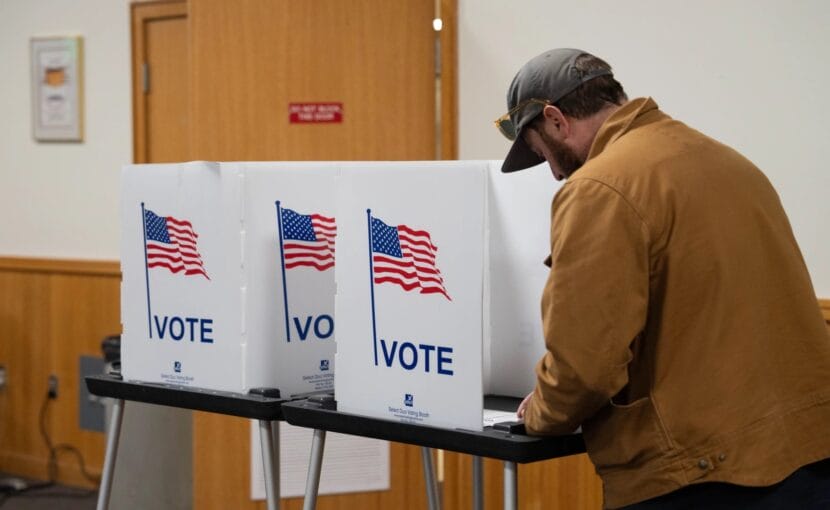
The U.S. Department of Justice will monitor Alaska’s compliance with federal voting rights laws in rural areas of the state for the Nov. 5 election, according to a statement from the agency.
The five areas of focus will be the Bethel Census Area, Dillingham Census Area, Kusilvak Census Area, North Slope Borough, and Northwest Arctic Borough – almost the entirety of the Northern and Western reaches of the state, with the exception of the Nome Census Area.
Officials in some Republican-led states, including Texas and Florida, have said they will not allow federal monitors to enter polling places. Asked whether Alaska would cooperate with DOJ’s monitoring efforts, Gov. Mike Dunleavy’s office referred questions to the Alaska Division of Elections. Neither state election officials nor the DOJ responded to emails Monday.
The state of Alaska has historically struggled to deliver equal voting opportunity to rural parts of the state – areas off the road system that tend to be higher-percentage or predominantly Alaska Native.
Seventy-seven communities in Alaska don’t have their own polling place, or share a polling place with a different community, according to the nonpartisan “Get Out the Native Vote” effort affiliated with the Cook Inlet Tribal Council.
In this year’s primary election, over a dozen communities experienced a late start to voting, including the Yukon-Kuskokwim Delta communities of Napaskiak and Stony River.
There is also only one early voting location in the entirety of rural Alaska: in Nome at the Region IV elections office. Some rural hub communities have the opportunity to vote early through absentee in-person ballots, which have historically been rejected at a higher rate than early votes in urban communities. The rejection rate can in part be explained by the fact that for early voting, eligibility is verified before a ballot is cast. With absentee ballots, eligibility is verified after the ballot is cast.
In June, the DOJ announced its finding that Alaska had violated the Americans with Disabilities Act (ADA) in 2022 at the local, state, and federal level by not properly providing people with disabilities access to voting.
In 2023, a U.S. District Court also approved the extension of a settlement in a long-standing case against the state, which alleges that Alaska violates the Voting Rights Act by not providing adequate language assistance to Alaska Native voters.
Earlier this year, DOJ monitored Alaska’s primary elections for compliance with language assistance requirements and other federal voting rights laws.
And just last month, the Alaska Division of Elections also delivered incorrect ballots to more than 90 voters who’d voted early through absentee in-person voting in Dillingham, King Salmon, and Aniak, according to the Anchorage Daily News.
On Election Day, DOJ said that Civil Rights Division personnel will be available to receive questions and complaints from the public related to possible violations of federal voting rights laws. Reports may be made through the department’s website www.civilrights.justice.gov or by calling toll-free at 800-253-3931.